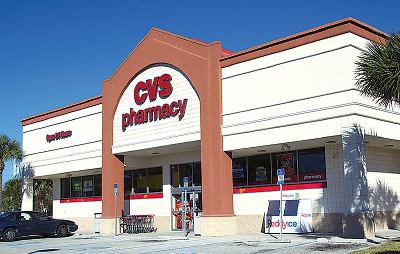CVS Caremark to Rid Shelves Of Tobacco Products
On February 5, CVS Caremark announced that it will stop selling cigarettes and other tobacco products at its more than 7,600 pharmacy locations nationwide by October 1.
“Ending the sale of cigarettes and tobacco products at CVS/pharmacy is the right thing for us to do for our customers and our company to help people on their path to better health,” said Larry Merlo, president and CEO of CVS Caremark, in statement. “Put simply, the sale of tobacco products is inconsistent with our purpose.”
The company plans to launch a national smoking-cessation program this spring that will include information and treatment options for those who want to free themselves of tobacco addiction. According to CVS Caremark, approximately 70 percent of smokers say they want to quit smoking, and 50 percent attempt to quit each year.
CVS Caremark estimates that it will lose approximately $2 billion in revenues on an annual basis from tobacco shoppers.
Roche Schizophrenia Drug Not Looking Promising
Bitopertin, the first in a new class of medicines known as glycine reuptake inhibitors, is being developed by Roche to remedy negative symptoms of schizophrenia, such as social withdrawal and lack of motivation. However, data from phase 3 clinical trials are showing that the anticipated “blockbuster” therapy keeps missing the mark.
Roche conducted two clinical trials evaluating the effects of bitopertin as an add-on treatment to other antipsychotics to reduce negative symptoms associated with schizophrenia in adults with psychosis. Results showed that bitopertin failed to meet the primary endpoint of a significant improvement on the Positive and Negative Syndrome Scale in both trials.
Current antipsychotics have been successful at remedying positive symptoms of schizophrenia, such as hallucinations and delusions, but no pharmaceutical company has reported success in developing drugs to reduce negative symptoms.
“These results are disappointing for people with negative symptoms because more effective treatments are needed for these debilitating effects of schizophrenia,” said Sandra Horning, M.D., chief medical officer and head of Global Product Development at Roche. “We will await data from the remaining bitopertin studies in schizophrenia before deciding on next steps.”
A third phase 3 trial investigating patients with persistent negative symptoms is ongoing, with three more trials evaluating the role of drugs in patients who continue to have positive symptoms of schizophrenia despite antipsychotic therapy.
Rivals Join Forces With NIH on Drug Development
On February 4, National Institutes of Health (NIH) Director Francis Collins, M.D., Ph.D., announced that 10 rival pharmaceutical companies have formed a pact to assist government-backed efforts in the accelerated discovery of new drugs indicated for undertreated illnesses such as Alzheimer’s disease, lupus, and rheumatoid arthritis.
The collaboration, called the Accelerating Medicines Partnership, will cost approximately $230 million and will consist of the sharing of scientists, tissue and blood samples, and data among NIH and participating drugmakers. The pact prohibits all involved companies from using any discovery for their own drug development until it is agreed by involved parties to make the data on that specific discovery public.
Some big-name companies involved include GlaxoSmithKline, Bristol-MyersSquibb, Sanofi, Takeda, and Johnson & Johnson.
Shire’s ADHD Medication Fails Depression Trials
Shire announced in February that it is no longer pursuing its top-selling attention-deficit/hyperactivity disorder medication, Vyvanse, as an adjunctive therapy indicated for adults with major depressive disorder (MDD) after the pharmacotherapy performed poorly against placebo in two phase 3 clinical trials.
Each clinical trial consisted of approximately 400 patients aged 18 to 65 who met DSM-IV-TR criteria for a diagnosis of MDD. After eight weeks of treatment, subjects taking Vyvanse averaged a mean reduction of 6.7 points on the Montgomery-Asberg Depression Rating Scale, compared with a 6.6 mean reduction among those taking placebo.
Shire is now exploring new indications for Vyvanse, such as binge-eating disorder.
Schizophrenia Drug Completes Phase 2 Trial
Omeros Corporation announced on January 29 positive results from a phase 2 clinical trial of OMS824—the company’s newly developed inhibitor of phosphodiesterase 10, an enzyme expressed in the brain that is suggested to contribute to cognitive impairment in those with schizophrenia and Huntington’s disease.
The phase 2 trial included 33 psychiatrically stable patients with schizophrenia who were administered OMS824 or placebo for two weeks. The drug was well tolerated by participants, and pharmacokinetics of OMS824 were not affected by concomitant antipsychotic medications, suggesting that the drug may be developed as both a monotherapy and as an adjunctive therapy to currently approved antipsychotics, according to Omeros. Efficacy conclusions cannot be drawn until sample sizes are increased in future phase 2 and 3 clinical trials
This quarter, Omeros expects to begin enrollment for phase 2 clinical trials evaluating tolerability of OMS824 in patients with Huntington’s disease. ■

